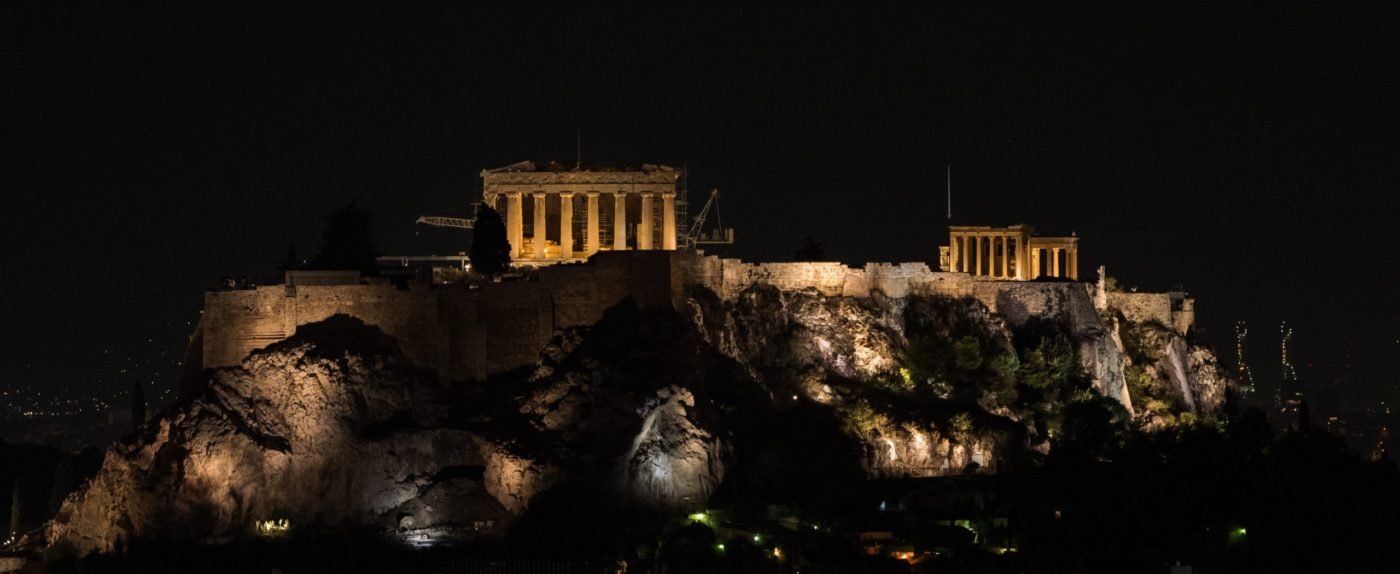
With better weather and longer evenings approaching I am loath to spend most workday evenings going straight home, it is repetitive and far from the best use of my time. As such and in an effort to expose myself to new experiences and learning, I recently decided to attend cultural and educational events whenever I can fit them in. An exhibition here and there and a lecture on a subject of interest seemed just the ticket. It also promised the added benefit of stress-testing my Spanish with forays into areas well beyond my comfort zone. A kind of Fight Club without the fighting.
Since buying my ticket to the Andy Warhol exhibition at Caixaforum a month or two back, I have been receiving regular e-mails informing me of upcoming events. Among the many things on offer are talks given by academics on a whole range of subjects and one of these caught my eye; ‘The Individual and Society in Classical Greece’ by Carlos García Gual, professor emeritus of Greek philology at the Complutense University Madrid. My knowledge of Greek history is quite limited and although this was probably not for novices, I’m fascinated by history anyway and booked a seat.
Giving myself ample time to walk the short distance from home, I arrived at the venue and following the instructions I’d been given over the phone, soon found my way to the conference room. I was greeted at the door by two young women dressed in Caixaforum uniforms smiling pleasantly and checking off the names of the arriving attendees. As I got to their table I smiled and gave my name and thought that would be it. However, one of the women unexpectedly asked me a question concerning a diploma. I said I didn’t understand and so to help, she kindly pulled a diploma from an envelope. I told her I knew what a diploma was but remained unclear what she was asking me in regard to it. This is where my otherwise competent Spanish grinds to a halt and leaves me floundering. When engaged in conversation directly or listening to something intentionally, one is able to navigate past any unfamiliar terms using context for signposts. However, when something comes out of leftfield, it doesn’t matter how simple the grammatical structure and vocabulary are, the terrain is unfamiliar and darkness descends.
It must have been just as confusing for the two ladies who found themselves in a position where they couldn’t carry out what is probably one of their least complicated duties. They must have been equally perplexed at having an attendee to a lecture who, on the face of it had only rudimentary Spanish. However odd it was for all concerned, it was hardly a Gordian knot and was soon settled with more smiling and me being ushered into the room.
Most of my fellow attendees tended toward the septuagenarian and I imagined they represented some part of Spanish academia.
The introduction began on schedule but the speaker’s elocution and microphone use made for hard work. He started each phrase clearly before tailing off with a mumbled finish and if it was tricky for me to hear, my heart went out to some of the more elderly in the audience.
Finally the good Professor got underway and spoke clearly and at a pace that was sympathetic to his audience. What I did get was interesting although with Spanish versions of Greek names and places differing from the English translations, it was at times a muddle. The place names on the projected maps were difficult to read and again I felt for some of the audience.
To say this lecture was like jumping in at the deep end is little exaggeration and by the end of the hour long talk my head was spinning. I was proud at least to have understood the greater part of the linguistic delivery but as I had feared, my knowledge of Greek history fell short. Finishing with questions from the audience confirmed that most attendees were indeed scholars of some type and native speakers to boot.
The question of the diploma had stayed with me and I resolved to find out exactly what it was as I left. In part I also felt some need for redemption in the eyes of the women who’d raised the question, and to push myself a little. Approaching one of them I asked what diploma she’d been referring to and although it was a relatively simple matter to understand linguistically, it raised as many questions as it answered. It turns out that attending the complete series of three lectures over three consecutive evenings earns one a diploma from Caixaforum. I was only able to attend the first lecture and so was ineligible.
I suppose, with its origins being Greek, the word diploma was suitable enough for the occasion. However, given that it could be earned by simply showing up and regardless of comprehension, it seemed reduced to its literal etymology of folded paper.
In the light of the ongoing scandal of some Spanish politicians claiming to hold a masters degree without ever having attended a single class or sat an exam, it seems some qualifications really are being devalued to folded paper.
As for me, my next conference is booked for a couple of weeks hence and I may even get a diploma in The International Order at a Crossroads: Non-Western Powers.







Ha ha ha ha- I felt for you every step of the way on that one.